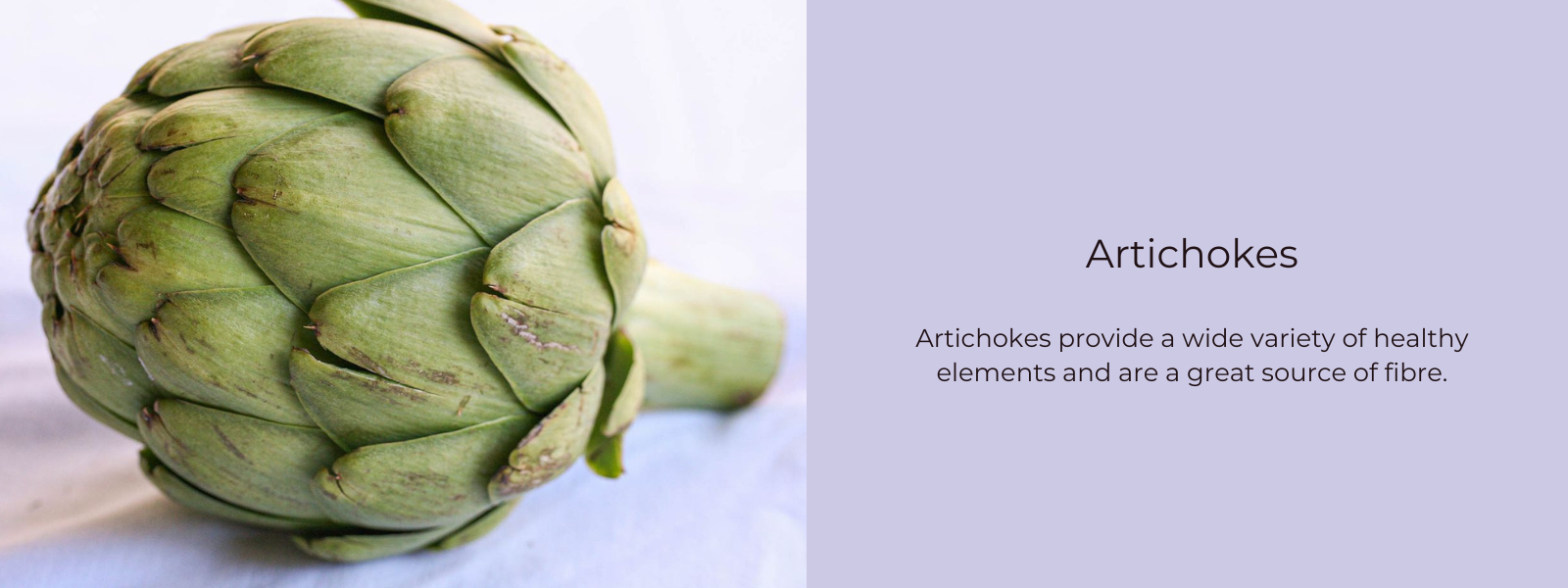Artichokes (Cynara scolymus) are a type of thistle vegetable that are cultivated primarily for their edible flower buds. Known for their unique flavor and texture, artichokes are a popular ingredient in various cuisines around the world. The most commonly consumed part is the tender heart and the fleshy base of the leaves, which are usually boiled or steamed. Artichokes are native to the Mediterranean region and are now grown in many parts of the world, including the United States, particularly in California, as well as in Italy, Spain, and France.
Table of Contents
What are Artichokes and Where are They Available?
Artichokes are perennial plants that produce large, spiky flower buds. When these buds are harvested before they bloom, they can be cooked and eaten. Artichokes are typically available in grocery stores and farmers' markets, especially during their peak season in the spring and fall. They can be found fresh, canned, or jarred, and are also available frozen.
Artichokes and Antioxidants
Antioxidants are vital for protecting the body from oxidative stress and free radicals, which can lead to chronic diseases and aging. Artichokes are known for their high antioxidant content, making them a valuable addition to a healthy diet.
Are Artichokes Rich in Antioxidants?
Yes, artichokes are rich in antioxidants. They are among the vegetables with the highest antioxidant content. Key antioxidants in artichokes include:
- Cynarin: Enhances liver function and bile production, aiding in digestion and detoxification.
- Silymarin: A flavonoid with strong antioxidant properties that helps protect the liver.
- Quercetin: An anti-inflammatory and immune-boosting flavonoid.
- Rutin: Strengthens blood vessels and has anti-inflammatory effects.
- Vitamin C: A potent antioxidant that supports immune function and skin health.
Artichokes Antioxidant Health Benefits
- Liver Health: Cynarin and silymarin in artichokes support liver function and detoxification, protecting the liver from damage and improving bile production.
- Digestive Health: Artichokes promote healthy digestion and relieve symptoms of indigestion, thanks to their high fiber content and the digestive benefits of cynarin.
- Heart Health: The antioxidants in artichokes help reduce cholesterol levels and improve blood pressure, contributing to better heart health.
- Cancer Prevention: Quercetin and other antioxidants in artichokes have anti-cancer properties, helping to protect cells from oxidative stress and reducing the risk of certain cancers.
- Anti-Inflammatory Effects: Antioxidants like quercetin and rutin help reduce inflammation in the body, which can lower the risk of chronic diseases such as arthritis.
Are Artichokes Good for Health?
Yes, artichokes are highly beneficial for health. They are low in calories but rich in essential nutrients, including dietary fiber, vitamins, and minerals. The high fiber content aids in digestion, helps regulate blood sugar levels, and promotes satiety, making artichokes a great food for weight management. Additionally, their antioxidants and other bioactive compounds provide numerous health benefits, including supporting liver health, enhancing heart health, and reducing inflammation.
Ways to Use Artichokes
Artichokes can be used in a variety of culinary applications:
- Steamed or Boiled: Serve whole artichokes with dips such as melted butter, aioli, or vinaigrette.
- Grilled: Marinate artichoke halves in olive oil, garlic, and herbs, then grill them for a smoky flavor.
- Stuffed: Fill the cavity of artichokes with a mixture of breadcrumbs, cheese, herbs, and garlic, then bake until tender.
- Soups and Stews: Add artichoke hearts to soups and stews for extra flavor and nutrition.
- Salads: Use marinated artichoke hearts in salads for a tangy and nutritious addition.
- Dips: Blend artichoke hearts with spinach, cheese, and herbs to make a creamy artichoke dip.
Popular Artichoke Recipes
- Stuffed Artichokes: Fill artichokes with a mixture of breadcrumbs, Parmesan cheese, garlic, and herbs, then bake until tender and golden.
- Spinach and Artichoke Dip: Combine cooked spinach and artichoke hearts with cream cheese, sour cream, and Parmesan cheese, then bake until bubbly and golden.
- Grilled Artichokes: Halve artichokes, marinate in olive oil and herbs, then grill until charred and tender.
- Artichoke Soup: Puree cooked artichokes with onions, garlic, broth, and cream for a rich and flavorful soup.
- Artichoke Salad: Toss marinated artichoke hearts with mixed greens, cherry tomatoes, olives, and a lemon vinaigrette.
Conclusion
Artichokes are a nutritious and versatile vegetable that offers numerous health benefits due to their high antioxidant content. They are beneficial for liver health, digestion, heart health, and reducing inflammation. With their unique flavor and texture, artichokes can be used in a variety of dishes, from salads and dips to grilled and stuffed preparations. Incorporating artichokes into your diet can enhance your overall health and provide a delicious way to enjoy a nutrient-rich vegetable.











Leave a comment